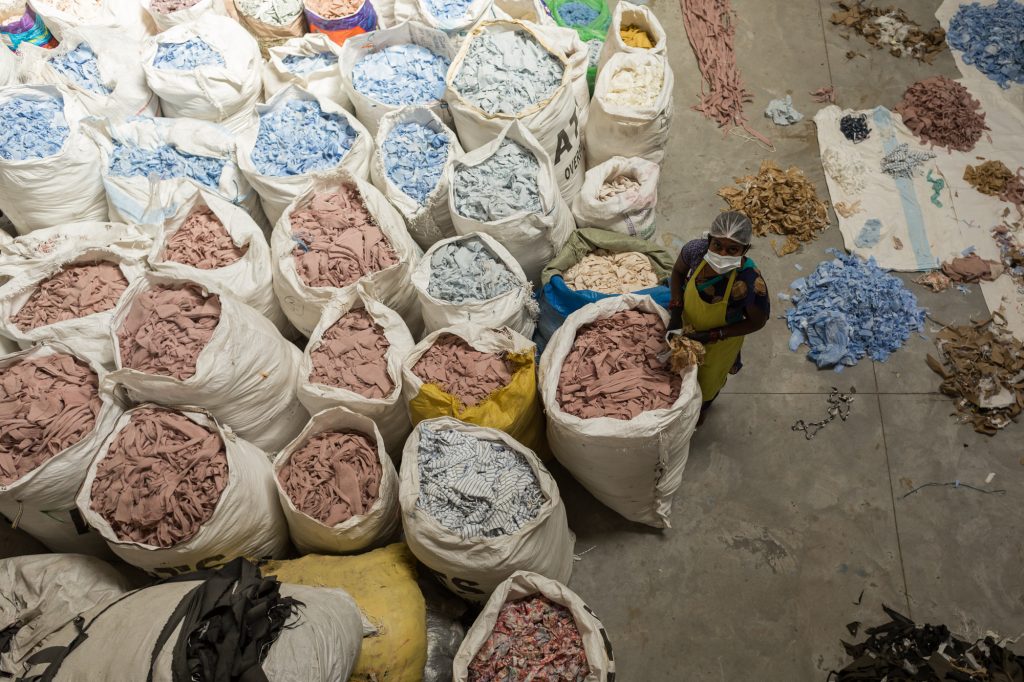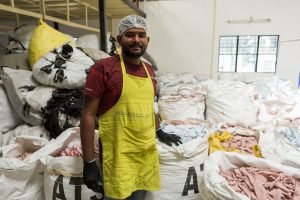 Mumbai: Social Alpha has joined hands with the H&M Foundation for the Saamuhika Shakti Initiative, and the JSW Foundation to support start-ups developing solutions in Waste Management. The 2nd edition of the nationwide grand challenge called ‘Techtonic – Innovations in Circular Economy’ has been launched to strengthen the focus on innovators and entrepreneurs building sustainable models to create efficient supply chains to manage waste generated, bolster the waste to value systems and empower waste picker communities in India. This partnership will focus on innovative solutions which can integrate informal waste pickers and create stable employment opportunities for them while accelerating waste management and processing in Bengaluru, Vijayanagar and Dolvi among other cities.
Mumbai: Social Alpha has joined hands with the H&M Foundation for the Saamuhika Shakti Initiative, and the JSW Foundation to support start-ups developing solutions in Waste Management. The 2nd edition of the nationwide grand challenge called ‘Techtonic – Innovations in Circular Economy’ has been launched to strengthen the focus on innovators and entrepreneurs building sustainable models to create efficient supply chains to manage waste generated, bolster the waste to value systems and empower waste picker communities in India. This partnership will focus on innovative solutions which can integrate informal waste pickers and create stable employment opportunities for them while accelerating waste management and processing in Bengaluru, Vijayanagar and Dolvi among other cities.
This year’s Techtonic challenge will follow two tracks – Market Validation Track (supported by H&M Foundation) and Scale Up Track (supported by JSW Foundation).
Through the Market Validation track, five winners will be supported with pilot opportunities of Rs 15 Lakh per start-up, and access to field partner networks for on-ground implementation in Bengaluru and other cities through H&M Foundation’s Saamuhika Shakti initiative. The winners will also have access to a curated set of offerings to provide support for digitisation and marketing.
 Through the Scale Up Track, two winners will be selected to implement their solutions on the ground through pilot opportunities of Rs 40 Lakhs, in both Vijayanagar and Dolvi. The winners will be partnering with the JSW Foundation teams to build sustainable business models to effectively manage waste and generate employment in these two districts.
Through the Scale Up Track, two winners will be selected to implement their solutions on the ground through pilot opportunities of Rs 40 Lakhs, in both Vijayanagar and Dolvi. The winners will be partnering with the JSW Foundation teams to build sustainable business models to effectively manage waste and generate employment in these two districts.
The winning start-ups from both these tracks will also have access to other offerings, including technology and business advisory, market access support and access seed capital of up to Rs One Crore per start-up under the Social Alpha Waste Innovators Accelerator programme.
The applications for Techtonic are now open for start-ups that have the potential to enable progression towards a circular economy by integrating the informal waste pickers into the fold.
Speaking on the occasion, Smita Rakesh, VP and Partner, Social Alpha, said, “The interlinkages between leakage of wastes and the health of the ecosystem have become very evident. Ineffective management of waste is a grave threat to the well-being of the millions of people in the informal recycling industry and the planet. We are thrilled that this alliance with the H&M Foundation and JSW Foundation reinforces Social Alpha’s commitment to bringing innovations and entrepreneurship working toward climate action and ensuring social inclusion to the forefront, and we will extend several levels of assistance in taking these solutions to market.”
Adding to this, Maria Bystedt, Strategy Lead, H&M Foundation said, “At H&M Foundation, we see it as both essential and inspirational to use technology and innovation to create social change. Waste management and material recycling are fundamental components of a circular economy, but for it to be truly sustainable, it needs to include the very group of people that upholds this value chain in India – the waste picker community. With Techtonic, we want to find disruptive innovations in the waste management chain that will contribute to creating sustainable improvements in the lives of informal waste pickers. We call it inclusive circularity.”
Ashwini Saxena, CEO, of JSW Foundation, said, “Waste is no more merely a ‘feel-bad’ aspect in our lives, but a true awareness-logistics-technology challenge that necessitates not only breakthroughs but also scaling up of these innovations, given the magnitude of the problem and our efforts in comparison. That is why this one-of-a-kind collaboration to nurture the circular economy is sorely needed. We hope to provide not just financial but also technical and managerial assistance to innovators as they scale up and test their concepts in real-world settings.”
Despite the challenges faced due to the pandemic, the first edition of Techtonic was able to support the implementation of four pilots on the ground. Of these, three are ongoing in Bengaluru while one is running in Varanasi. These pilots focussed on showcasing sustainable business models which integrate informal waste pickers into the operations, creating avenues for stable income opportunities.

